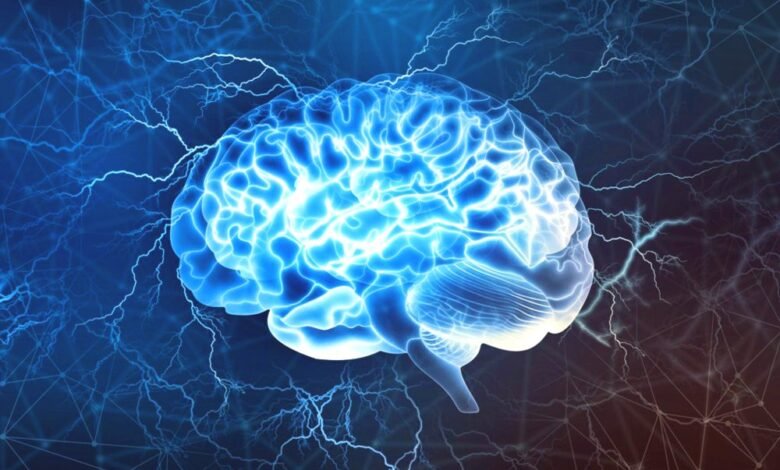Understanding Alzheimer’s and Dementia: A Guide to Cognitive Health

Welcome to “Understanding Alzheimer’s and Dementia: A Guide to Cognitive Health.” This article aims to provide you with valuable insights into the complexities of Alzheimer’s disease and dementia, offering a deeper understanding of these conditions and their impact on cognitive health. Whether you are seeking information for yourself, or a loved one, or simply to expand your knowledge, this guide is designed to empower you with the tools and knowledge necessary to navigate this challenging field.
Alzheimer’s disease and dementia are neurodegenerative disorders that affect millions of people worldwide. These conditions progressively impair memory, thinking, and behavior, often leading to significant changes in daily functioning and quality of life. Understanding the underlying causes, symptoms, and available treatments is crucial in providing effective care and support to individuals affected by these conditions.
Read More: Can Drugs for ED Aid in Alzheimer’s Prevention?
Understanding Alzheimer’s and Dementia
Alzheimer’s and dementia are often used interchangeably, but they are distinct conditions. Alzheimer’s disease is the most common cause of dementia, accounting for approximately 60-80% of cases. Dementia is a general term that encompasses a range of symptoms affecting memory, thinking, and social abilities, severely impacting a person’s daily functioning.
What is Alzheimer’s Disease?
Alzheimer’s disease is a progressive brain disorder that gradually destroys memory and thinking skills, eventually impairing the ability to carry out simple tasks. It is characterized by the accumulation of plaques and tangles in the brain, leading to the loss of connections between nerve cells and their eventual death. The exact cause of Alzheimer’s disease is not yet fully understood, but a combination of genetic, lifestyle, and environmental factors is believed to contribute to its development.
Causes and Risk Factors
While the exact cause of Alzheimer’s disease remains unknown, several risk factors have been identified. Age is the most significant risk factor, with the majority of Alzheimer’s cases occurring in individuals aged 65 and older. Other factors include a family history of the disease, certain genetic mutations, cardiovascular conditions, and lifestyle choices such as smoking and poor diet. Additionally, individuals with Down syndrome are at a higher risk of developing Alzheimer’s disease.
Symptoms and Progression
The symptoms of Alzheimer’s disease can vary from person to person but generally start with mild memory loss and progress to severe cognitive decline. Common signs include forgetfulness, confusion, difficulty with problem-solving, language problems, disorientation, mood, and personality changes, and ultimately, a loss of independence. The progression of Alzheimer’s disease typically occurs over several years, with the later stages involving the need for extensive care and support.
Diagnosing Alzheimer’s Disease
Diagnosing Alzheimer’s disease involves a comprehensive evaluation that includes medical history, cognitive tests, neurological examinations, and brain imaging. Early and accurate diagnosis is crucial, as it allows individuals and their families to plan for the future, explore available treatment options, and make necessary lifestyle adjustments.
Treatment Options
Although there is currently no cure for Alzheimer’s disease, various treatment options can help manage symptoms and improve quality of life. Medications such as cholinesterase inhibitors and memantine can temporarily alleviate cognitive and memory difficulties. Additionally, non-pharmacological approaches like cognitive training, physical exercise, and social engagement have shown promising results in slowing down the progression of the disease and enhancing overall well-being.
Lifestyle Changes for Cognitive Health
Maintaining a healthy lifestyle is essential for promoting cognitive health and reducing the risk of Alzheimer’s disease and dementia. Regular physical exercise, a balanced diet rich in fruits, vegetables, and omega-3 fatty acids, social engagement, intellectual stimulation, and quality sleep can all contribute to brain health. By adopting these lifestyle changes, individuals can enhance their cognitive abilities and potentially delay the onset of cognitive decline.
Diagnosing Alzheimer’s Disease
Dementia affects not only the individuals diagnosed with the condition but also their caregivers. Managing dementia requires a comprehensive approach that involves providing a safe and supportive environment, ensuring proper nutrition and hydration, managing medications, maintaining a consistent routine, and accessing support services. Caregivers play a vital role in supporting individuals with dementia, and it is essential to prioritize their well-being as well.
Support for Individuals and Caregivers
Numerous support services are available for individuals with Alzheimer’s disease, dementia, and their caregivers. Support groups, counseling, respite care, and assisted living facilities can provide invaluable assistance and guidance. Connecting with others who are going through similar experiences can offer emotional support and a sense of community, reducing feelings of isolation and stress.
Promoting Cognitive Well-being
Cognitive well-being extends beyond addressing Alzheimer’s and dementia. It involves actively engaging in activities that challenge and stimulate the brain. Reading, puzzles, learning new skills, playing musical instruments, and pursuing hobbies can all contribute to maintaining cognitive function. By incorporating these activities into daily routines, individuals can promote cognitive well-being and potentially reduce the risk of cognitive decline.
Research and Future Perspectives
Ongoing research aims to deepen our understanding of Alzheimer’s disease and dementia and develop more effective treatments. Advances in genetics, brain imaging, and biomarkers hold promise for early detection and intervention. Additionally, efforts are being made to raise awareness, reduce stigma, and support individuals and families affected by these conditions. The future looks promising as researchers work towards finding a cure and improving the lives of those living with Alzheimer’s and dementia.
Read More: How to Take Care of a Dementia Patient
Conclusion
Understanding Alzheimer’s and dementia is crucial for individuals, families, and caregivers. By gaining knowledge about the causes, symptoms, diagnosis, and treatment options, individuals can navigate the challenges associated with these conditions more effectively. Additionally, adopting a healthy lifestyle, accessing support services, and promoting cognitive well-being can contribute to overall cognitive health and well-being. By working together, we can create a more supportive and inclusive environment for those affected by Alzheimer’s and dementia.
FAQs
Can Alzheimer’s disease be prevented?
While there is no guaranteed way to prevent Alzheimer’s disease, adopting a healthy lifestyle, engaging in intellectual activities, and managing cardiovascular risk factors can potentially reduce the risk.
Are there any experimental treatments for Alzheimer’s disease?
Numerous clinical trials are underway to explore new treatments and interventions for Alzheimer’s disease. These trials aim to discover innovative approaches to slow down the progression of the disease or find a cure.
How can I support a loved one with dementia?
Supporting a loved one with dementia involves providing a safe and supportive environment, maintaining open communication, offering assistance with daily activities, and accessing available support services.
Is there a difference between Alzheimer’s and normal age-related memory loss?
Yes, there is a difference. Normal age-related memory loss is mild and does not significantly interfere with daily functioning, whereas Alzheimer’s disease involves more severe cognitive decline and memory loss that affects daily activities.
Where can I find more information and support for Alzheimer’s and dementia?
There are various organizations and resources available, such as Alzheimer’s Association, dementia support groups, and online forums, where you can find information, support, and connect with others facing similar challenges.







